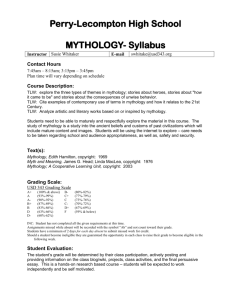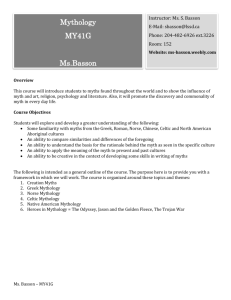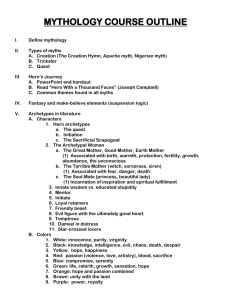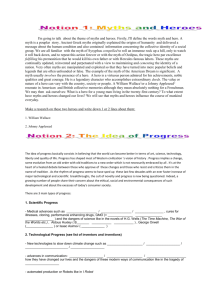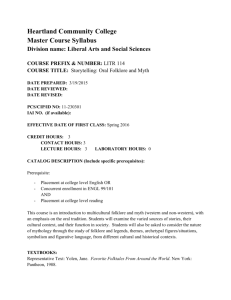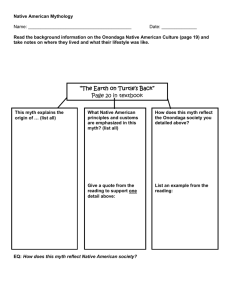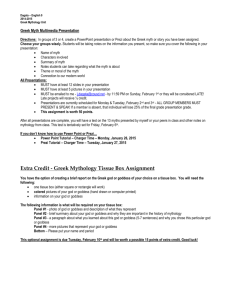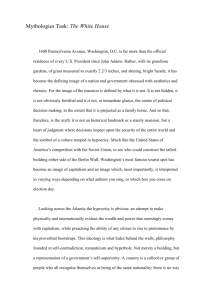Mythology- Syllabus - Perry
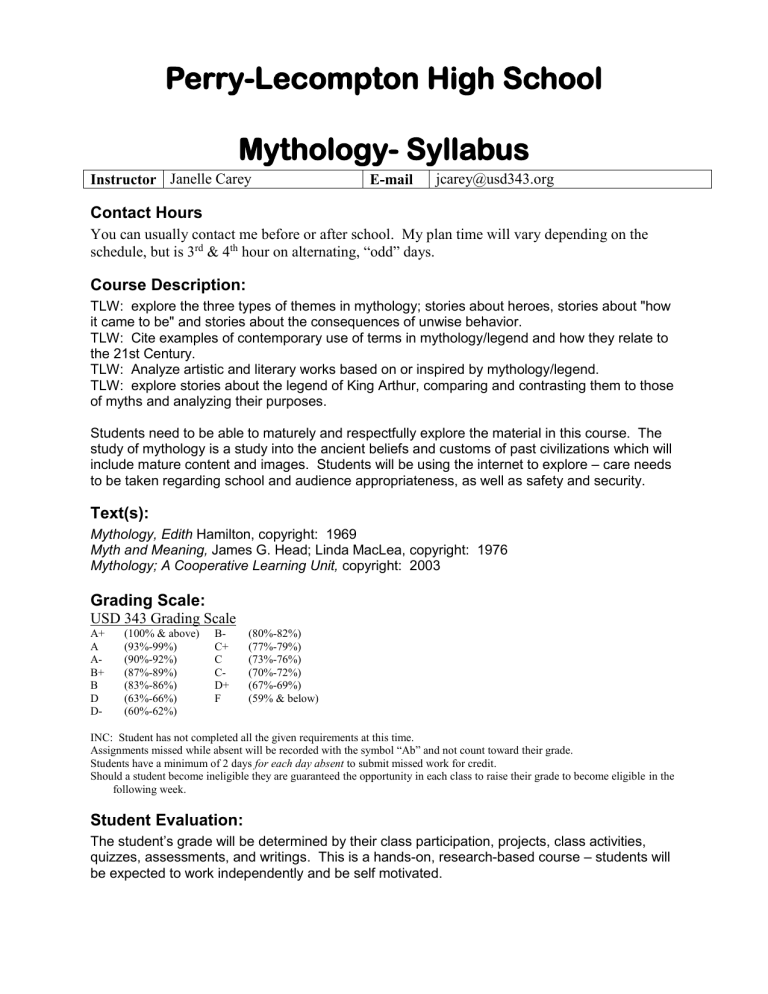
Perry-Lecompton High School
Mythology- Syllabus
Instructor Janelle Carey E-mail jcarey@usd343.org
Contact Hours
You can usually contact me before or after school. My plan time will vary depending on the schedule, but is 3 rd
& 4 th
hour on alternating, “odd” days.
Course Description:
TLW: explore the three types of themes in mythology; stories about heroes, stories about "how it came to be" and stories about the consequences of unwise behavior.
TLW: Cite examples of contemporary use of terms in mythology/legend and how they relate to the 21st Century.
TLW: Analyze artistic and literary works based on or inspired by mythology/legend.
TLW: explore stories about the legend of King Arthur, comparing and contrasting them to those of myths and analyzing their purposes.
Students need to be able to maturely and respectfully explore the material in this course. The study of mythology is a study into the ancient beliefs and customs of past civilizations which will include mature content and images. Students will be using the internet to explore – care needs to be taken regarding school and audience appropriateness, as well as safety and security.
Text(s):
Mythology, Edith Hamilton, copyright: 1969
Myth and Meaning, James G. Head; Linda MacLea, copyright: 1976
Mythology; A Cooperative Learning Unit, copyright: 2003
Grading Scale:
USD 343 Grading Scale
A+ (100% & above) B- (80%-82%)
A (93%-99%) C+ (77%-79%)
A- (90%-92%)
B+ (87%-89%)
B (83%-86%)
C
C-
(73%-76%)
(70%-72%)
D
D-
(63%-66%)
(60%-62%)
D+ (67%-69%)
F (59% & below)
INC: Student has not completed all the given requirements at this time.
Assignments missed while absent will be recorded with the symbol “Ab” and not count toward their grade.
Students have a minimum of 2 days for each day absent to submit missed work for credit.
Should a student become ineligible they are guaranteed the opportunity in each class to raise their grade to become eligible in the following week.
Student Evaluation:
The student’s grade will be determined by their class participation, projects, class activities, quizzes, assessments, and writings. This is a hands-on, research-based course – students will be expected to work independently and be self motivated.
Perry-Lecompton High School
Requirements:
Daily work, projects, activities, assessments and writings will contribute to the final grade. We will read myths and legends and do many activities using them.
Behavior Plan:
Students are expected to adhere to all rules and policies as described in the 2011-2012 PLHS
Student & Parent Handbook.
Rewards / Extra Credit:
Extra credit opportunities may arise throughout the semester.
Course Outline: (All/some of the following activities/projects may be included.)
Research skills:
Copyright and plagiarism
Resources – print and non-print
Hero
Hero research
Who’s your hero?
When good guys go bad
Deity/Hero/Character/Creature Journal
God/Goddess or other deity research
Focus on personal relevance
God/goddess doll/action figure
Create a new god/goddess in paper doll form.
Write a myth showcasing that deity and his/her talent.
Film the myth or create an ad featuring your deity and share
Myth Sale
Persuasive activity – sales pitch for a myth of your choice
Weekly Myth review
Each week students will be responsible for reading, reviewing, and presenting myths from different cultures
– three written reviews per week
(each from a different realm – i.e. Native American, Egyptian, Nordic, etc.) sharing at least one a week .
King Arthur—Where myth meets legend
How is King Arthur god-like?
Why are King Arthur stories similar to myths?
Misc. Activities related to mythology/legend
Myth allusions
Customs
Urban legends
Folklore
State Standards:
This course will address Kansas Reading Standards 1; 1.2; 1.3 and 1.4 and Kansas Literature
Standards 2; 2.1 and 2.2
